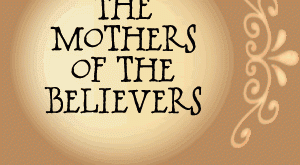 In most of the Middle Eastern countries where Muslims are in the majority, most of the people who can be considered as “average citizens” would give this answer: “The Qur’an is the holy book of our religion.” Yet, they know very little about the content of the Qur’an, about what is written in its pages.
In most of the Middle Eastern countries where Muslims are in the majority, most of the people who can be considered as “average citizens” would give this answer: “The Qur’an is the holy book of our religion.” Yet, they know very little about the content of the Qur’an, about what is written in its pages.
In fact, the Qur’an is used for many purposes that are far removed from its true revealed purpose. It is usually hung on the walls of houses within a decorative cover and read, usually by older people, from time to time. People read it in Arabic, but as they only know how to read Arabic letters without understanding the meaning, most of the time they have no idea what they have been reading about, and so have no grasp of the content of the Qur’an.
The Qur’an is also supposed to afford some very interesting benefits to people. After reading it and performing some weird rituals like breathing hard on another person’s face, the reader and the reader’s close relatives are believed to be protected from a possible future “accident or misfortune.” The Qur’an is credited with being some sort of amulet that includes talismanic words that protect people against bad luck. The Qur’an is also believed to have a frightening power: it smites people if they tell lies! At graveyards it is read out for the deceased without anyone knowing what is being read. It can even be used for telling fortunes.
In short, in most of the countries where Muslims are in the majority, only a small percentage of people know the content of the Qur’an and ponder on the Qur’an as required. As a result, people who are ignorant of the real message of the Qur’an, attribute different meanings to it. Many people believe some traditions to have their origin in the Qur’an, although they may be contradictory to the very nature of the Qur’anic message. For example, there are many people who believe that a blue bead, which is believed to possess the power to avert the Devil’s eye, is recommended in the Qur’an.
So then, what is the true nature of the Qur’an? The answer must be derived from the Qur’an itself, as that is where the truth is to be found.
[Here is a Message for mankind: Let them take warning from it, and let them know that He is no other than the One Allah: let men of understanding take heed.] (Ibrahim 14:52)
[And We have indeed made the Qur’an easy to understand and remember: but will any take heed?] (Al-Qamar 54:32)
[There is, in their stories, instruction for men endued with understanding. It is not a tale invented, but a confirmation of what went before it, a detailed exposition of all things, and a guide and a mercy to any such as believe.] (Yusuf 12:111)
[This is the Book; in it is certain and unmistakable guidance for those who fear Allah.] (Al-Baqarah 2:2)
These verses and many others emphasize that the real purpose of the revelation of the Qur’an is to encourage people to ponder on such crucial issues as the creation and purpose of life, to make them know about Allah Who has created them, and to guide them to the right way. The Qur’an is a book that is needed by people with open minds and souls.
Many rituals believed to have originated from the Qur’an are widely practiced, but in fact are not from the Qur’an. On the contrary, they conflict with the Qur’anic message. This shows us that there is a huge difference between the true religion as explained in the Qur’an and the concept of religion generally prevalent. This difference has been caused by abandoning the real source, the Qur’an. Of this, the Qur’an says:
[The Messenger says, ‘My Lord, my people treat this Qur’an as something to be ignored.’] (Al-Furqan 25:30)
Therefore, what is needed in the first place is to correct this wrong point of view about the Qur’an and make people understand that the Qur’an is not a book which is addressed only to the Prophet (peace and blessings be upon him) but is addressed to all people who consider themselves Muslims. Any person who utters this well known statement “I’m a Muslim, al-hamdu lillah,” must read the Qur’an and try to understand the meaning of the verses. In the Qur’an, the importance of learning verses and reciting them is especially emphasized.
[And recite what is revealed to you in your homes of the Signs of Allah and His wisdom: for Allah understands the finest mysteries and is well-acquainted with them.] (Al-Ahzab 33:33)
Because of not doing what is ordered in the Qur’an and not learning the religion from its original source, countless prejudices that stem from traditions have been introduced into religion. The verses of the Qur’an strongly emphasize that, in order to understand religion, there is no need to look for any source other than the Qur’an.
[Say: ‘Shall I seek for any judge other than Allah? When He it is Who has sent to you the Book, explained in detail.’ They know full well, those to whom We have given the Book, that it hath been sent down from your Lord in truth. Never be then of those who doubt.] (Al-An`am 6:114)
[What is the matter with you? How do you judge you? Will you not then receive admonition? Or have you a manifest authority? Then bring your Book of authority if you be truthful!] (As-Saffat 37:154-157)
Of course, learning the Qur’an is only an introductory step as application should follow it. Some people believe that the Qur’an addresses only Muslims of the 7th century while others think that only a small number of the verses address people other than the Muslims of the 7th century. Those with such a mentality are satisfied just with reading the Qur’an and thinking that they have fulfilled their religious duties by so doing. However, it is not only a matter of learning what is in the Qur’an, but also of putting it into practice, fulfilling the duties ordered in the Qur’an, adopting the moral standards explained in the Qur’an; in short, applying the Qur’an to one’s own everyday life.
Those who claim that the Qur’an has become outdated and needs to be revised to be in accordance with this new age, cannot grasp the fact that the Qur’an is not confined by the chains of time but covers all ages and societies, as it has been revealed by Allah Who has knowledge of everything, past and future. When one reads the Qur’an with a sincere heart and an open mind, one sees that the models of people and societies described in the Qur’an existed in every age in history, including that of today, and that the Qur’an explains the current state of people and societies. All the disorder, perversion, and mistakes of a society which has strayed from true religious values have been clearly stated in the Qur’an. The reactions of the people of these societies towards religion have been described with detailed character analyses. These descriptions and analyses are relevant in all respects to the world of today, thus demonstrating the “sociological miracle” of the Qur’an.
What is interesting here is that such inconsistent views as “society is in a state of continuous progress whereas religion is static” have also been diagnosed in the Qur’an as arising from a deficiency of comprehension. We should keep in mind that unbelievers who lived thousands of years before the Qur’an also interpreted religion as “tales of the ancients” (An-Nahl 16:24).
When one starts reading the Qur’an and tries to implement it in one’s daily life, then one can be considered to be on the way to becoming a real Muslim as described in the scriptures. With amazement, one begins to see how the Qur’an covers every moment of life. Many events that a person experiences have been mentioned in the Qur’an and the reactions of a Muslim which would befit those occasions have also been explained in detail.
Being satisfied with reading and knowing the Qur’an without practicing it may have certain displeasing consequences. Allah describes the Jews as the kind of people who behave in this way and likens them to “a donkey which carries huge tomes” without any understanding of them:
[Those who were charged with the obligations of the Mosaic Law but who subsequently failed in those obligations, are like a donkey which carries huge tomes without understanding them. Evil is the example of people who falsify the Signs of Allah: and Allah does not guide people who do wrong.] (Al-Jumu`ah 62:5)
Source : http://www.onislam.net
Post Disclaimer | Support Us
Support Us
The sailanmuslim.com web site entirely supported by individual donors and well wishers. If you regularly visit this site and wish to show your appreciation, or if you wish to see further development of sailanmuslim.com, please donate us
IMPORTANT : All content hosted on sailanmuslim.com is solely for non-commercial purposes and with the permission of original copyright holders. Any other use of the hosted content, such as for financial gain, requires express approval from the copyright owners.
 Sri lanka Muslims Web Portal Sri Lanka Muslims News Center
Sri lanka Muslims Web Portal Sri Lanka Muslims News Center
 Donate
Donate


